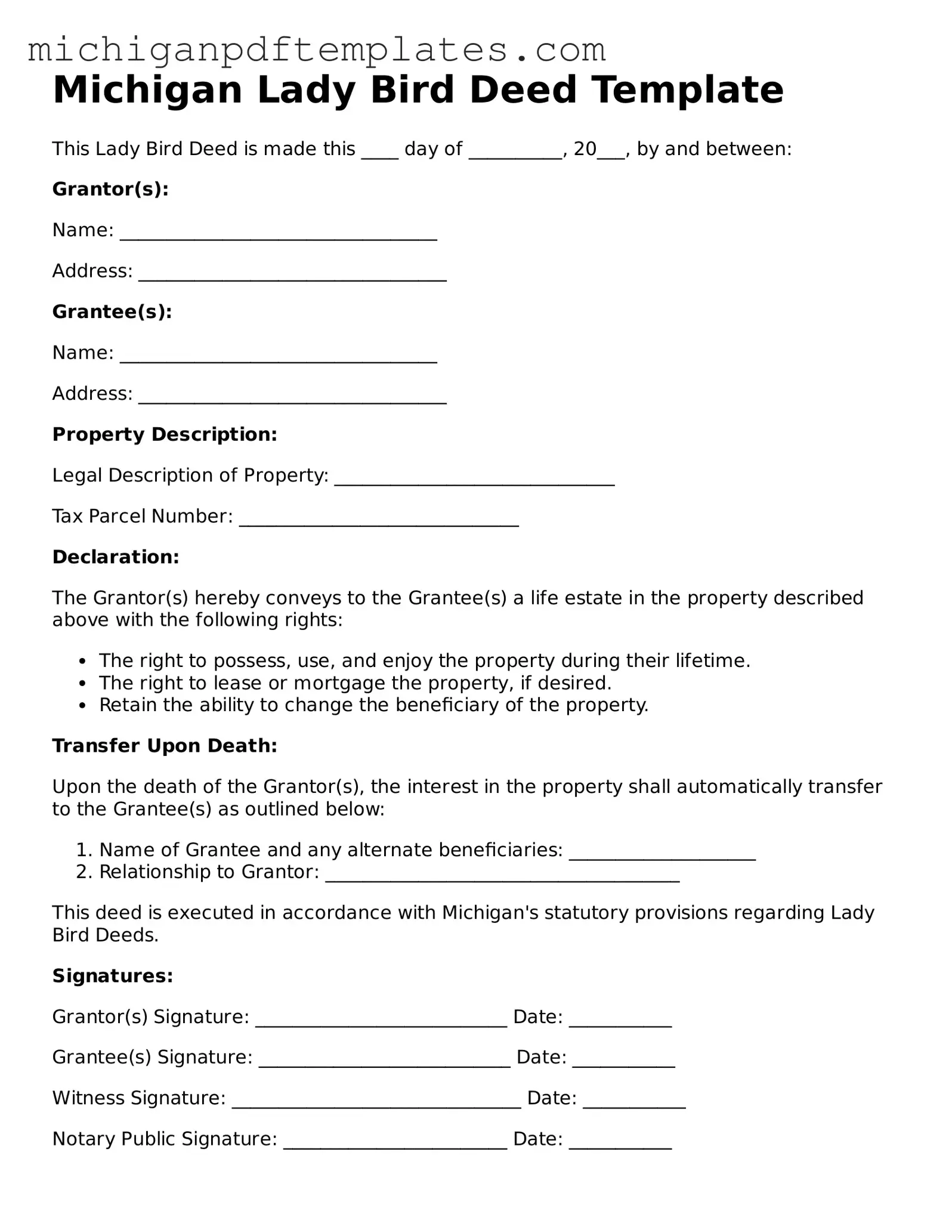Legal Michigan Lady Bird Deed Template
The Michigan Lady Bird Deed is a legal document that allows property owners to transfer their real estate to beneficiaries while retaining certain rights during their lifetime. This unique form provides a way to avoid probate, ensuring a smoother transition of property ownership upon the owner's death. Understanding its benefits and implications can help individuals make informed decisions about their estate planning.
For those interested in utilizing this form, consider filling it out by clicking the button below.
Get Your Form Now

Legal Michigan Lady Bird Deed Template
Get Your Form Now

Get Your Form Now
or
▼ PDF Form
Finish this form quickly and move on
Fill in and complete Lady Bird Deed online quickly.